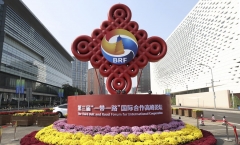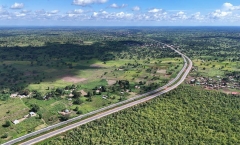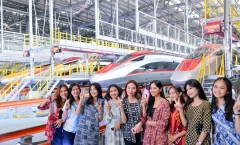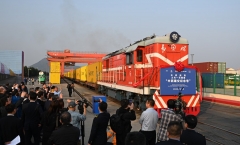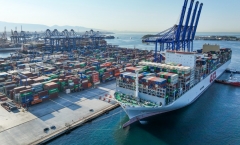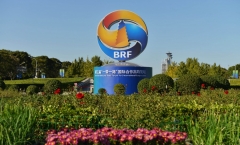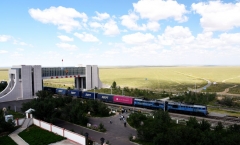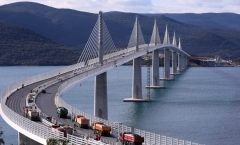- Home
- My Understanding of China
My Understanding of China
Uruguay is an “excellent” example of how BRI cooperation can be very positive, said Fernando Lugris, Uruguayan Ambassador to China. “We have [witnessed] an increase of more than 50% in our trade since we joined the initiative,” he said, adding that cooperation projects are fiscally responsible and rooted in Uruguayan values. “We have zero debt with China. So we are an example that we can join the initiative and we can contribute with our own principles and specificities.” Check out the full interview.
Georgia has emerged as a gateway between Europe and Asia and is ready to play a more important role in the Belt and Road Initiative, said Archil Kalandia, Georgian Ambassador to China. “We are ready to be involved with our port infrastructure, with our railway infrastructure, with our highway infrastructure, to play a more important role in Belt and Road Initiative,” he said. Georgia was one of the first signatories to the BRI, officially signing a memorandum of cooperation with China in 2015.
Despite the dangerous trajectory international relations have taken, cooperation is still possible and the BRI remains a tool that can contribute to worldwide prosperity.
While a lot is changing in the world, there are some things that do not: the Belt and Road Initiative’s drive for common prosperity, for example, is just one of the goals that it is steadily pursuing.
Whereas the West largely ignores suffering caused by increased global economic inequality, China’s Belt and Road Initiative provides a proactive solution.
The Yiwu-Madrid freight rail service, a key part of the Belt and Road Initiative, is an opportunity for European companies to enter the vast Chinese market.
The BRI not only points out the way for mankind to overcome the challenges of the 21st century, but also exhibits the direction to move towards a peaceful future.
The BRI has already become a vital driver of new growth, especially in the Global South. It is increasingly assessed as perhaps the most globally transformative project launched by any country in history.
Official data suggest that the BRI has been gaining momentum in countries and regions all over the world through its networks of roads, ports, railways, power plants, and other infrastructure projects.
“Although our two countries are geographically far apart, our two peoples are close in hearts,” Maja Stefanovic, Serbian Ambassador to China said in fluent Chinese. Serbia is an important link of the Belt and Road (BRI) and has numerous ongoing infrastructure projects with China. Check out her full interview on the BRI’s impact in Serbia.
The Belt and Road Initiative is by no means done and will continue to serve as a crucial platform in driving globalization.
There is genuine demand among these developing countries for the roads, railways, ports and power projects China has been building under BRI. It fills a vital developmental gap.

 Facebook
Facebook
 Twitter
Twitter
 Linkedin
Linkedin
 Google +
Google +


